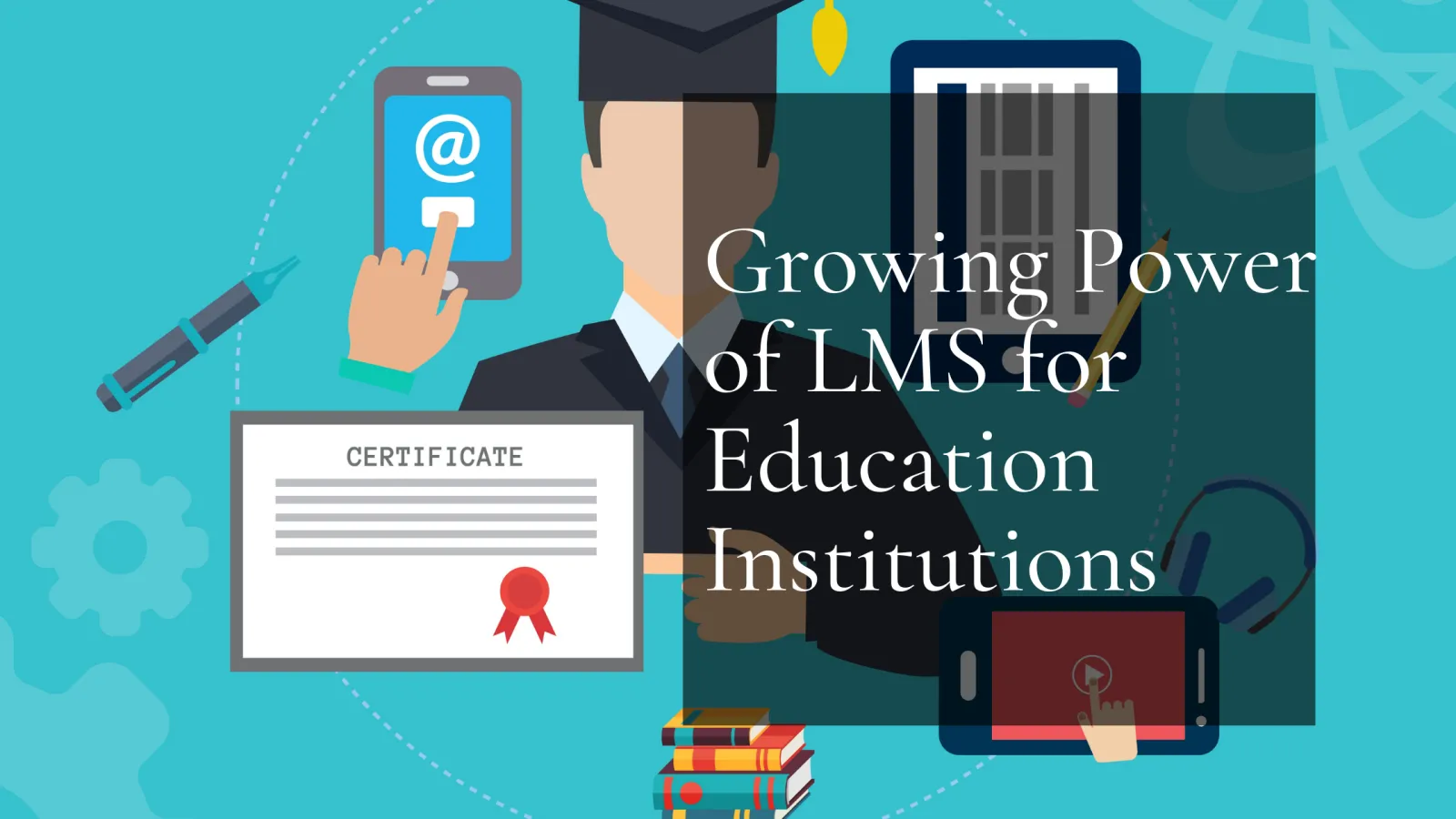Learning Management System or LMS is a cloud-based software program that assists in course information, content delivery, and facilitating learning modules. Modern-day LMSs date back to the early 2000s when Blackboard Inc. and CourseInfo first created Interactive Learning Network to be installed at Yale Medical School and Cornell University. Further in 2002, the open-source LMS revolution began with Moodle, which became one of the most popular LMS later. In this article, we’ll explain how education institutions can tap into the growing power of LMSs to enhance hybrid learning.
Rapid adoption of LMSs
Even though learning management systems for educational institutions have existed for over two decades, we have seen staggering global market growth in the last few years. In April 2020, the World Economic Forum released a report highlighting that over 1.2 billion students in more than 186 countries were impacted directly due to school closures amid the COVID-19 pandemic.
The pandemic crisis further acted as a digital juggernaut for the education ecosystem which rapidly adopted and revolutionized the learning management system industry. As education goes into a full-blown digital ecosystem, the need for interactive, secured and customized learning tools will also increase, hence pushing the demand for LMSs further. In 2020 itself the market grew by 23.8% and is expected to grow at 19.1% Compound Annual Growth Rate reaching USD 37.9 billion in 2026.
Learning Management Systems: Why and What?
Since LMSs come with the capability of enabling educational institutes to widen their reach, LMSs’ functionality becomes increasingly adaptable. The high demand for LMSs is attributed to the rising need for accessible learning with the management of content. Recurring lockdowns have peaked the demand for interactive and smart learning platforms like open online courses, e-learning, online tutorials, and mobile education. Efforts to make content delivery more interactive and fun has also led to the reimagining of LMSs to make them more institute-specific as per the demand.
LMS platforms come with several benefits, which include growing productivity and efficiency for any institute. Let’s understand some points on the growing power of LMS for education institutions.
Single platform for course management
Educators usually find it hard to organize their teaching processes and contents on multiple platforms, such as Zoom, Google Meet, or Skype. It also hinders educators from selling courses online on different apps or platforms, creating forms or touch bases with each student. This not only decreases efficiency but also wastes time.
LMS platform can help in effective time management by scheduling classes in advance, without manual intervention. The teachers can now just organize lessons and upload for each student to log in and get access through one common platform.
Automation led improved efficiency
Teacher-student interaction through the LMS platform ensures effective management. Students can take on the quizzes, tests, and exams, and submit their papers. Queries, concerns, or questions of students can be easily answered either through live chat, or emails facilitated directly through automation in LMS systems. Marking students’ assignments, automated certification, and connecting them to relevant reads help improve efficiency at many levels.
Personalization
Learning Management System helps individual educators or institutes in delivering personalized and custom services which cater to specific target audiences. Tailoring course material to suit each level of student both current and prospect with an individual teaching approach helps build a better brand for an educational platform as well.
Functionality, design, and features of LMS can deliver the desired content to the target market. Linguistic preferences are another key feature that LMS provides. Whether an institute chooses monolingual, bilingual, or multilingual choice is also possible with an LMS.
Easier collaboration and communication
LMS platforms facilitate easy collaboration and communication between students and teachers. It is an open channel where different options of communication like email, chats, forums, and chatbots are available to the students and teachers.
LMS is also an effective platform for building email campaigns or having audience data for planning webinars, seminars, and understanding users’ requirements.
Tracking user behavior becomes easier with LMS
LMS comes with an opportunity to track user behavior by integration of analytical tools. Number of monthly users, students’ attendance, number of courses or lessons taken, most visited pages, time spent on each page/ course/ lesson- data like this is trackable with ease through LMS.
Additionally, LMS also enables decision-makers like teachers or educators in creating individual goals for students, which must be accomplished for final results. Tracking students’ activities and goal completion can be achieved through the power of LMS.
Ease of data collection
LMS not only helps in effective and easier data collection but also assists in marking multiple recurring events like attendance without the hassle of the teacher taking that pain. Every student that registers on the platform provides an email address, name, and sometimes phone number. By adding mandatory fields of choice, an institute can get easily more information as and when needed.
Conclusion
An LMS can be one of the most effective supporting tools for interactive learning sessions in remote education ecosystems with the increasing investment in the ed-tech market. In the USA itself, about 54% of the higher education institutes and 42% of the K-12 institutes are investing money in ed-tech.
The power of LMS is the assortment of opportunities. From organizing any number of lessons to being creative in features, LMS can help in managing, creating, publishing, and organizing as much content as required. They also enable an institute to reach out to a wider audience through a single platform.





